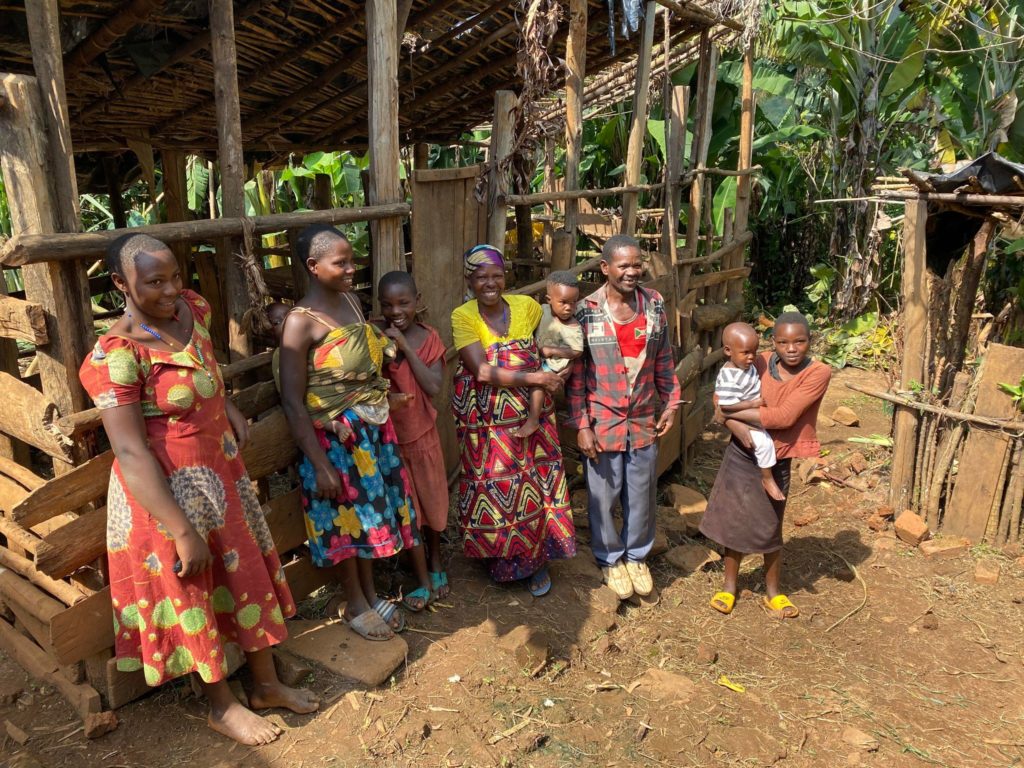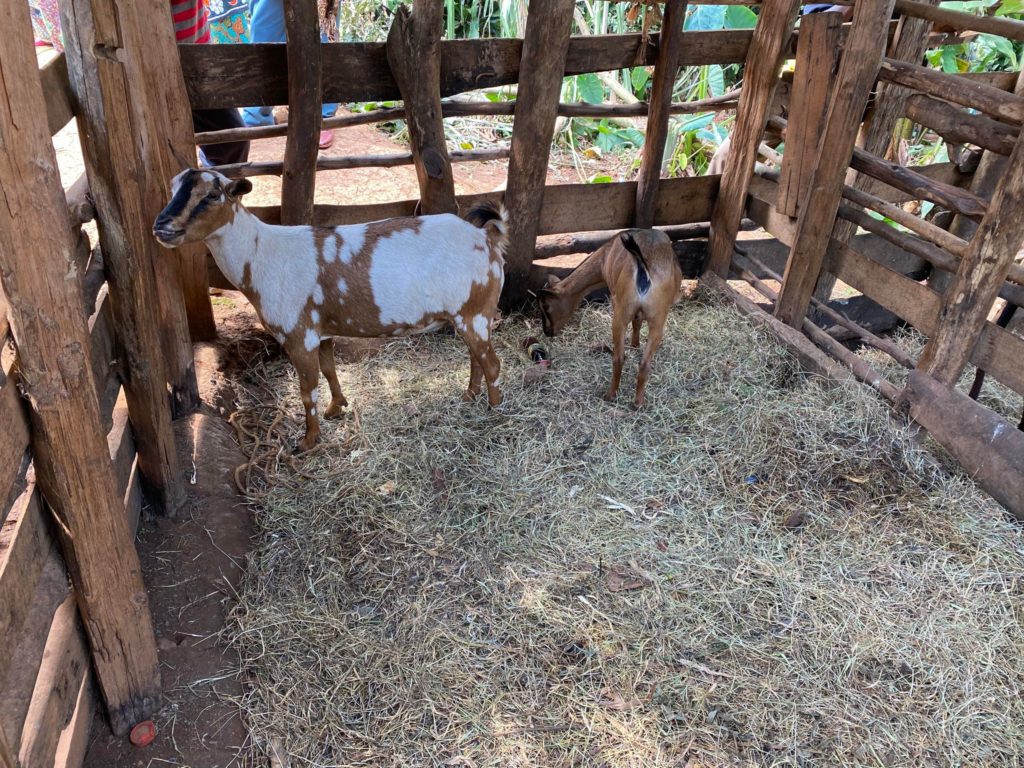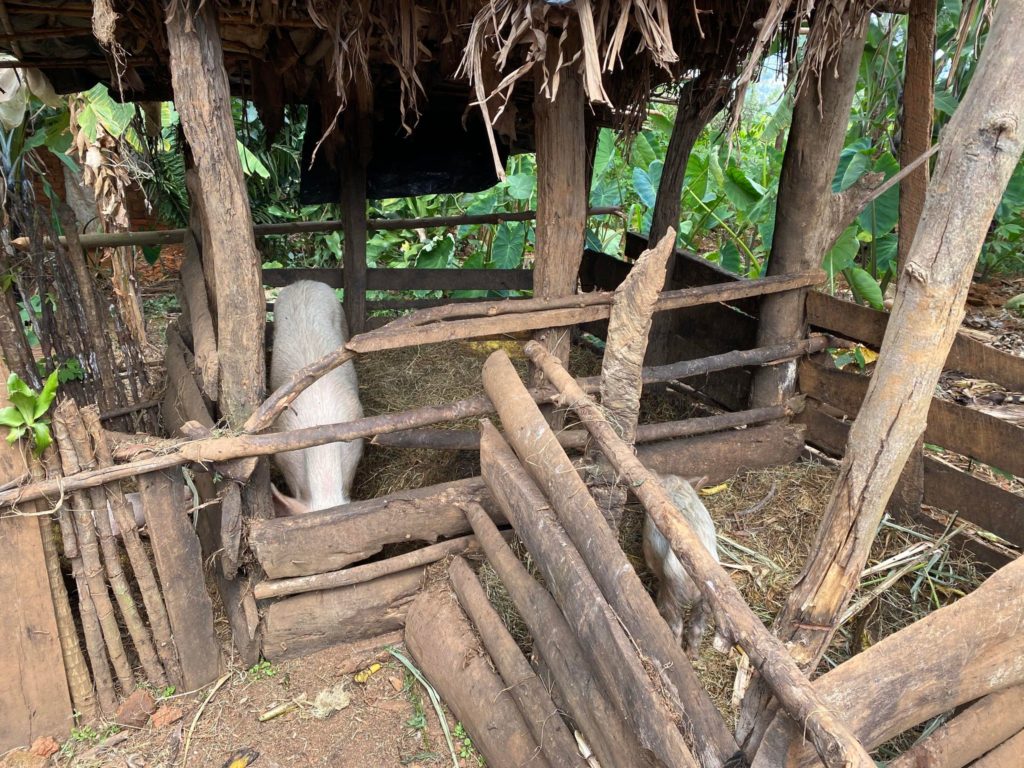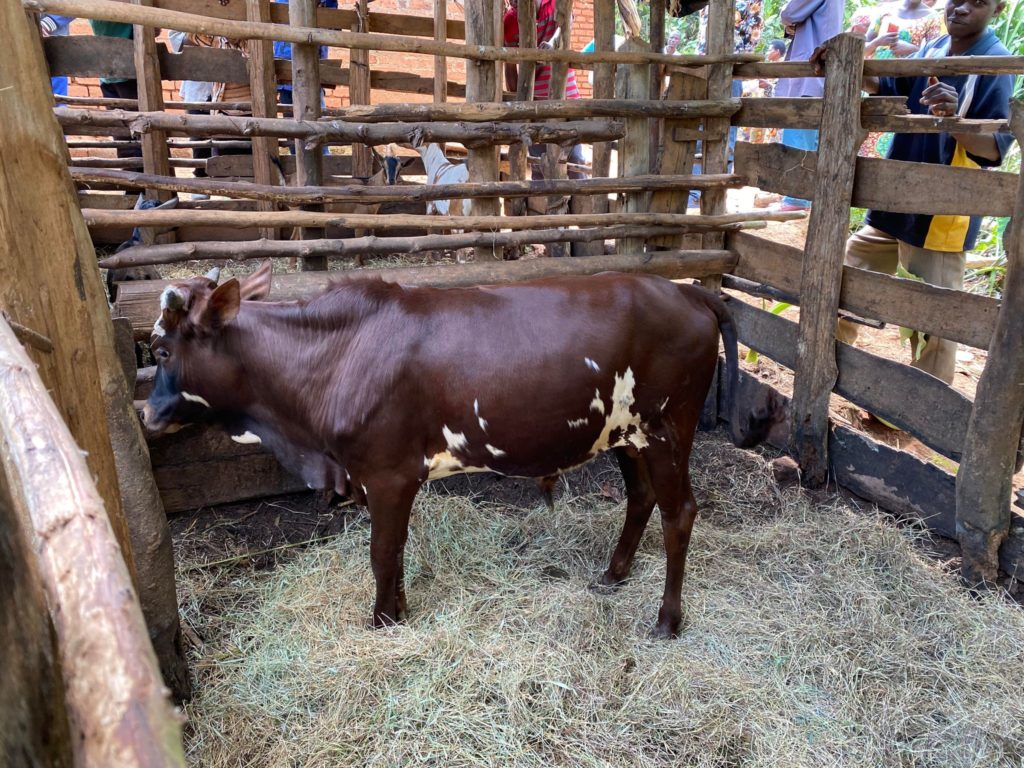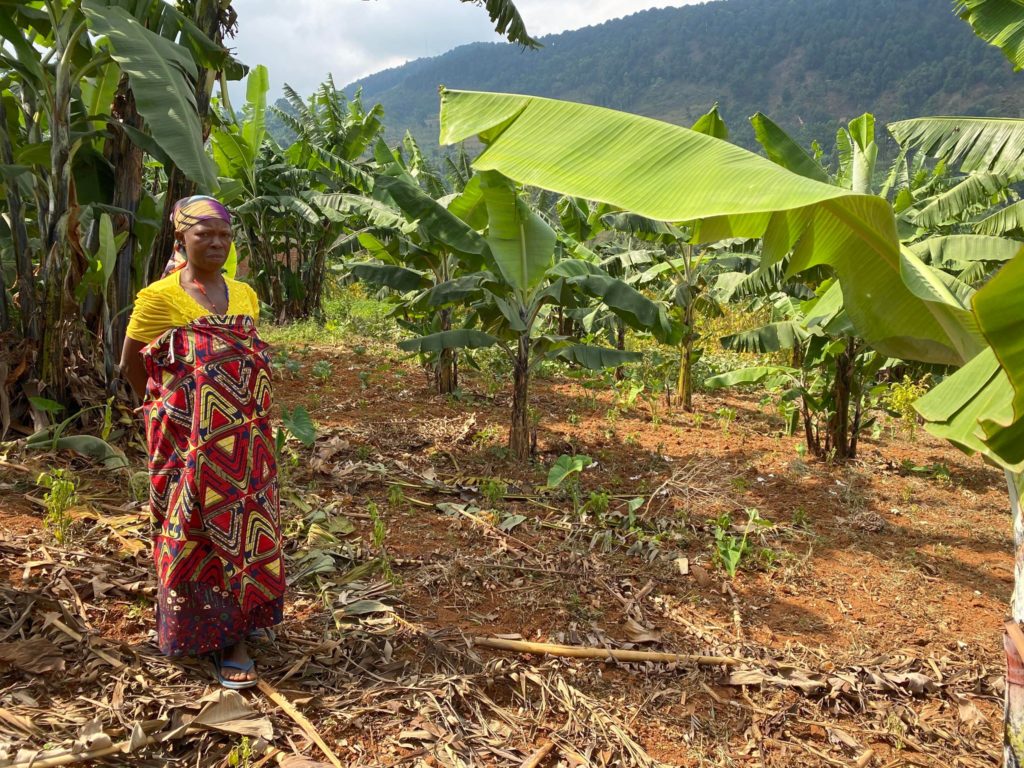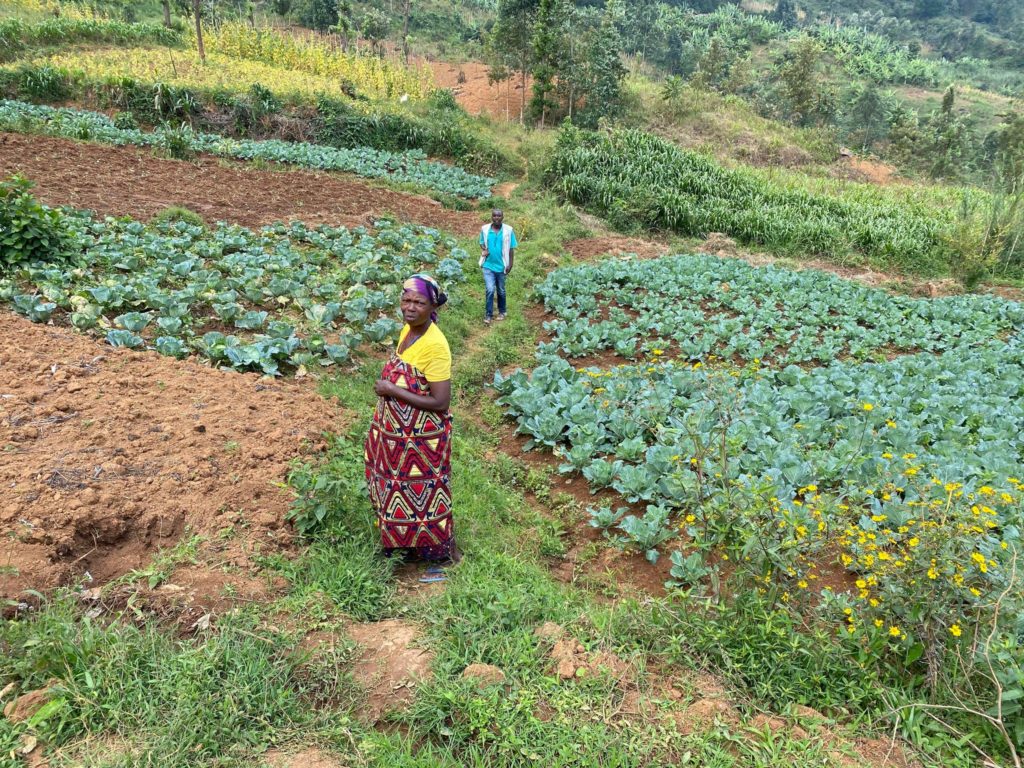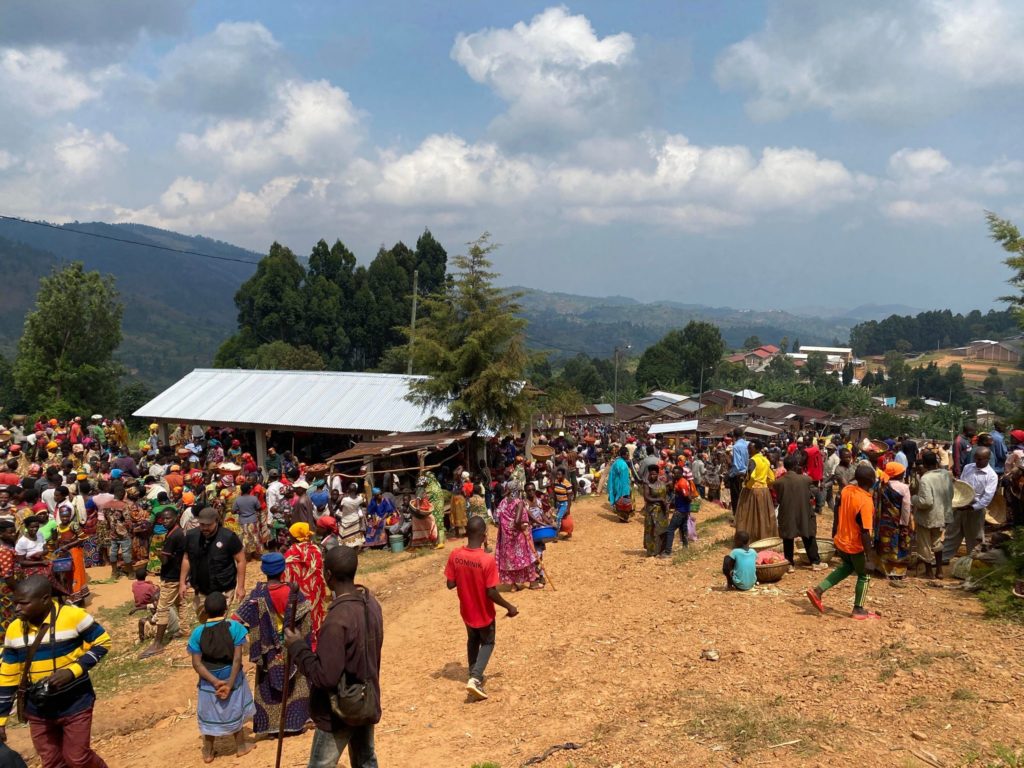
Inspiring story: how a Burundian family improved their living conditions
Testimonial from a family involved in training in agroecological practices
The family of Dorothée Ndikumwenayo and Charles Niragira, like other families living on the hill of Gahinda, Burambi commune, Rumonge province in Burundi, benefited from training in agroecological practices and livestock breeding.
After receiving training in strategic planning, which aims to plan the economic activities of the family micro-enterprise over 3 years, the family began market gardening on 0.5ha, planting cabbages, tomatoes and onions. These cash crops (a choice made by the household during the planning phase) enabled the family to earn a substantial income within a few months, enabling them to purchase a pregnant sow. Once the sow had farrowed, the sale of the piglets generated income that was used to purchase a pregnant cow. In addition to their two cows, the family now owns pigs and goats.
“Before, we didn’t breed. We weren’t aware that we could do it, because we’d never done it before, we thought it was only for people with means. We used to grow manioc, maize and cowpea beans, but we didn’t get good harvests, and our income was low,” says Dorothée, a mother.
Secodev and OAP, its local partner, decided to support the structuring of farmers’ associations and the creation of savings and credit groups, enabling a considerable rise in their standard of living over the last three years.
“Thanks to training in agroecological practices for cassava, maize and cowpea, our harvests have doubled, with nearly 250kg per crop, compared with less than 100kg previously. We have also planted banana plantations. We use this harvest for seeds, for sale, and to feed our family. We’ve gone from subsistence farming, where we barely had enough to feed our children, to farming where we eat our fill and earn money. We’re happy to be part of the association and to be united all together.”
Training courses in strategic planning adapted to the needs and abilities of learners, offer specific support and advice to farming families regarding their investments, and bring farmers’ seeds up to date, by explaining selection and conservation techniques. Households are given a new lease of life, and family harmony is placed at the heart of the project. The association’s next steps are to step up breeding, and to produce its own seeds for distribution to its members.
Discover the family in photos below:


